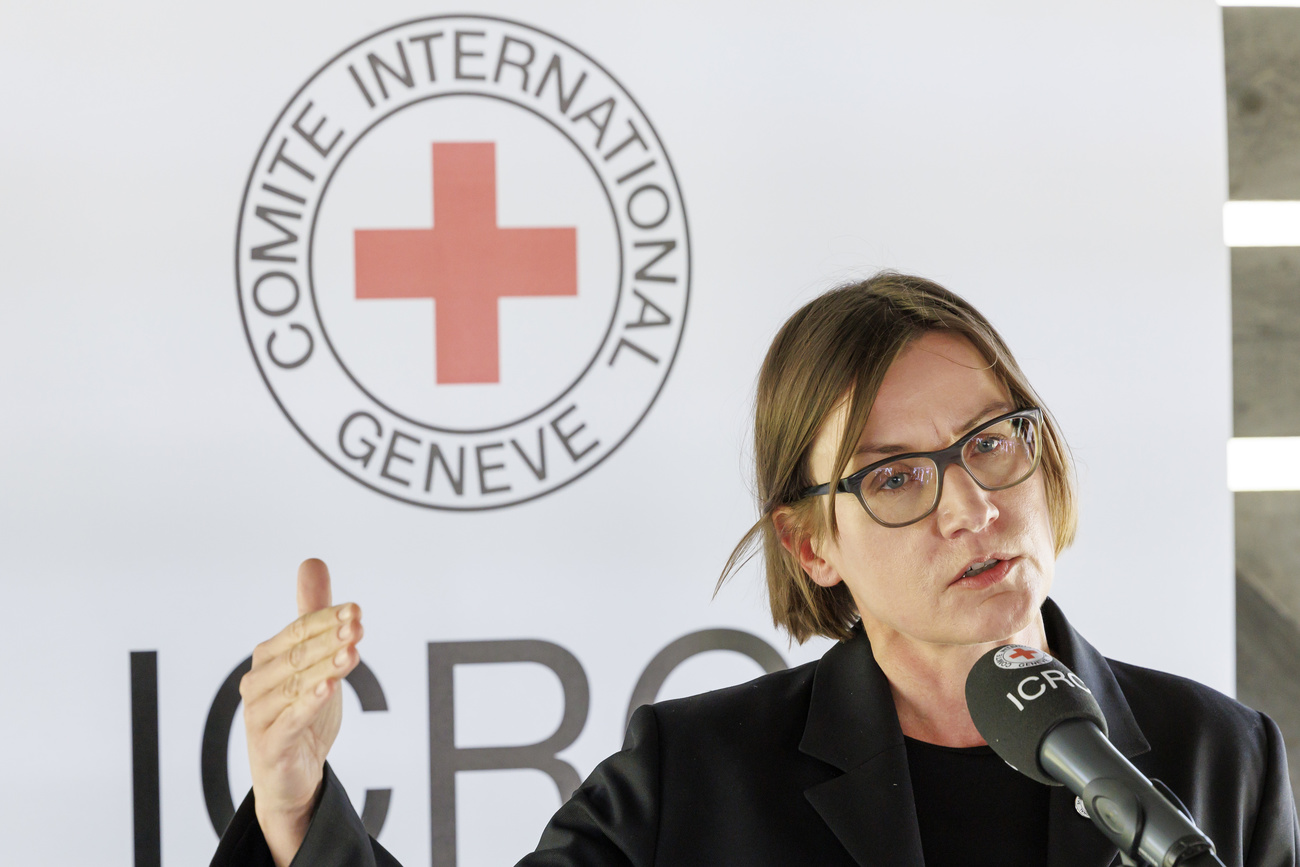
Canton Geneva promises CHF40 million to troubled Red Cross

The Geneva cantonal government has pledged CHF40 million ($44.8 million) in emergency funds to the International Committee of the Red Cross (ICRC), which is experiencing serious financial difficulties.
The Geneva-based ICRC has been struggling with a big funding gap for some time. As a result, it must carry out large cuts to humanitarian staff and offices around the world. It has been calling on big donors to step in to provide urgently needed funds.
The one-off emergency donation by the Geneva government should help the ICRC carry out certain essential missions, such ensuring the development and protection of respect for international humanitarian law or support to protect detainees and civilian populations.
+ Woman to head Red Cross for the first time
The cantonal government hopes this pledge for 2023 will send “a strong signal” to other donors to help support the humanitarian organisation that was founded 160 years ago in Geneva.
The ICRC is facing one of the worst financial situations in its history. On May 23 it announced that cost-cutting measures this year would result in 1,800 job losses at headquarters and in delegations worldwide, and the closure of at least 26 of its 350 global sites.
+ Read more on the ICRC’s current role in Ukraine
The organisation has warned that is it facing a shortfall in its desired budget of CHF2.79 billion ($2.99 billion) for 2023. The overall budget has almost doubled in ten years from CHF1.18 billion in 2012.
On March 30, ICRC’s governing board approved cuts of CHF430 million for this year and the beginning of next.
Fundraising is particularly difficult. ICRC director Robert Mardini told media in March that there were “fewer donations for humanitarian aid in general” and that the Russia-Ukraine conflict had led to crises in other parts of the world “being forgotten”.
But some employees are frustrated with the direction the organisation has taken over past decade. In early June, Swiss public radio, RTS reported that 2,500 of ICRC employees had signed an open letter to the organisation’s management to express their anger. They blame previous executives for what they call a “budgetary drift”. They argue that the ICRC is too big and has lost sight of its core mission: protecting civilians in conflict, visiting prisoners, and reuniting lost relatives.
RTS investigation into ICRC salaries
An investigation published by Swiss public radio, RTSExternal link, on Thursday revealed the high salaries and severance payments earned by former top ICRC officials.
US tax data seen by reporters showed that former ICRC President Peter Maurer, for example, earned up to CHF437,000 per year during the 2010s, while former ICRC general manager Yves Daccord took home CHF330,000 a year. In 2021, the six other ICRC directors received annual salaries of between CHF250,000 and CHF290,000 The ICRC confirmed these figures.
ICRC’s director of human resources, Claire Sperandio, defended the salaries: “It is an organisation that has highly professionalised, with more than 20,000 employees and a budget of over CHF2 billion. We therefore need the best possible talent in our management functions. To do this, we must be attractive and competitive, the salary is part of that.”
She told RTS that the ICRC paid salaries that were “on average 20% below the other players in the sector”, referring to the major UN agencies.
Former ICRC delegate and Green Party parliamentarian Nicolas Walder criticised the high salary scale: “The ICRC should be more modest with its salaries. It would do better to align itself with NGOs rather than with the UN agencies. The credibility of the organisation depends on it, and it also needs to be supported more than ever by Switzerland.”

More
Funding gap: ICRC calls on big donors to step up

In compliance with the JTI standards
More: SWI swissinfo.ch certified by the Journalism Trust Initiative


























You can find an overview of ongoing debates with our journalists here . Please join us!
If you want to start a conversation about a topic raised in this article or want to report factual errors, email us at english@swissinfo.ch.